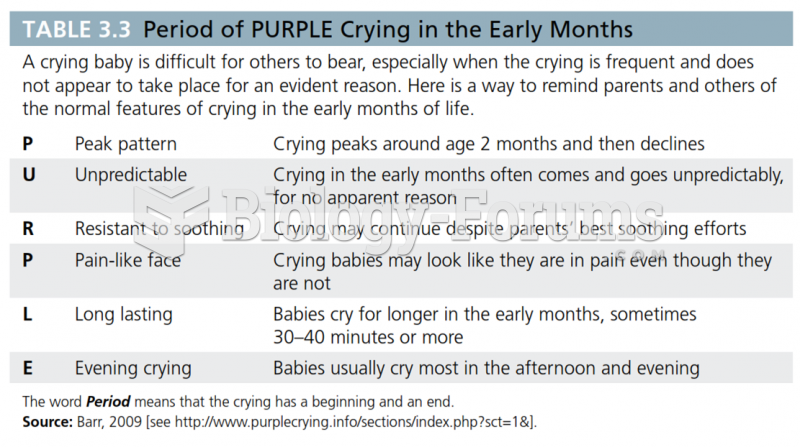|
|
|
Did you know?
Adolescents often feel clumsy during puberty because during this time of development, their hands and feet grow faster than their arms and legs do. The body is therefore out of proportion. One out of five adolescents actually experiences growing pains during this period.
Did you know?
People about to have surgery must tell their health care providers about all supplements they take.
Did you know?
When blood is exposed to air, it clots. Heparin allows the blood to come in direct contact with air without clotting.
Did you know?
In 1844, Charles Goodyear obtained the first patent for a rubber condom.
Did you know?
Most childhood vaccines are 90–99% effective in preventing disease. Side effects are rarely serious.
 Vision with macular degeneration is experienced with an inability to focus in the center of the visu
Vision with macular degeneration is experienced with an inability to focus in the center of the visu
 The terrorist attack of September 11, 2001, is surely a defining event for the cohorts who experienc
The terrorist attack of September 11, 2001, is surely a defining event for the cohorts who experienc





